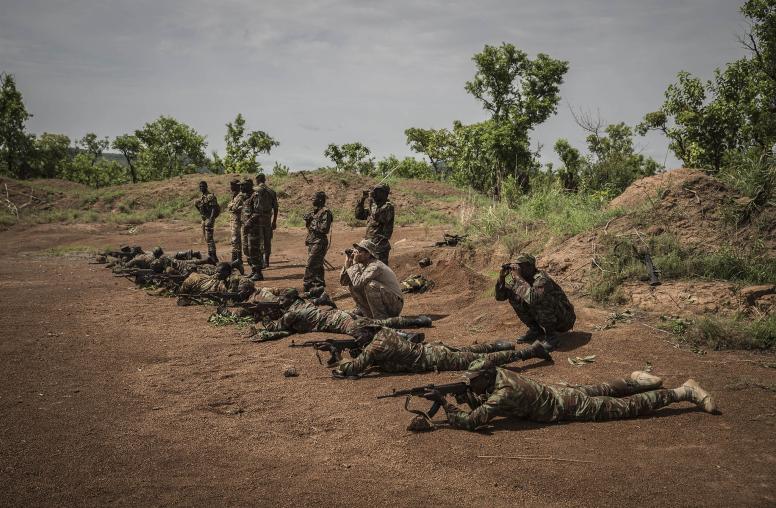Lessons from Strengthening Capacity in Countering Violent Extremism
An evaluation of a three-year USIP program to strengthen capacity in the field to counter violent extremism revealed that effective project design, thoughtful recruitment strategies, and tailored course content are critical. Participants reported applying what they learned to either adjust existing CVE programs or develop new programs altogether. This report explores the lessons from the project for funders and practitioners to develop more effective projects.
Summary
- Approaches that seek to rebuild social relations and bridge identity divides are increasingly being applied to provide non-kinetic responses to address the persistent threats and challenges of violent extremism around the globe, especially in fragile states.
- Beginning in 2013, the US Institute of Peace, working with multiple partners, sought to distill thirty years of peacebuilding knowledge to strengthen the capacity of individuals and organizations seeking to address violent extremism.
- The project leveraged three thematic approaches: developing strategies for preventing youth radicalization in educational settings; creating alternative narratives, rather than reactive counternarratives, to violent extremists through the media and messaging stream; and developing approaches for identifying and leveraging community resilience to prevent and counter violent extremism (CVE) through the community empowerment stream.
- An evaluation of the project revealed that effective project design, thoughtful recruitment strategies, and tailored course content that adequately covers approaches across the spectrum of preventing to countering are critical to effectively strengthening the capacity to address the drivers of violent extremism.
- Project designers need to incorporate strategies that mitigate risk and encourage context-sensitive thinking, as well as developing techniques to ensure sensitivities that may arise can be handled appropriately and safely.
- In adult-learning contexts, informal networks sometimes emerge and become a valuable tool to sustain engagement and learning between participants. Accordingly, project designers or funders should consider intentionally building in a mechanism to encourage sharing and mentoring opportunities.
- Engagement in the project resulted in participants applying what they learned to adjust existing CVE programs or develop new programs altogether. The majority of those surveyed, 94 percent, said that their understanding of the dynamics of violent extremism in their communities increased.
- Recommendations for funders and project implementers include a focus on project design, recruitment, and suggestions for developing course content that draws on tried-and-true peacebuilding approaches.
About the Report
This report explores lessons from a three-year project by the United States Institute of Peace (USIP) to strengthen the capacity of individuals and organizations working to address violent extremism in their home communities. The findings and lessons are for funders and practitioners whose goal is to make an impact on the countering violent extremism (CVE) landscape through education and training.
About the Authors
Nathaniel L. Wilson is a program officer focusing on Libya for USIP’s Center for Middle East and Africa; in previous roles he coordinated the CVE project evaluated in this report and USIP Academy’s Policing for CVE Program. Jeff Krentel is a USIP senior program officer who leads planning, evaluation, and learning efforts for the Center for Applied Conflict Transformation.



